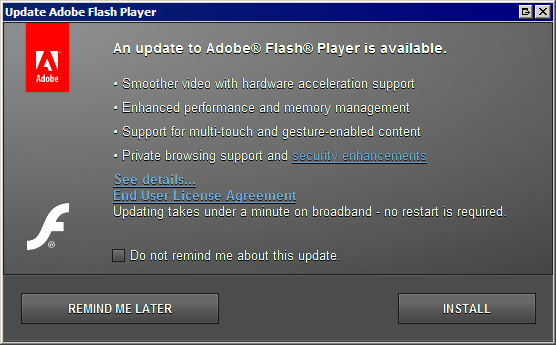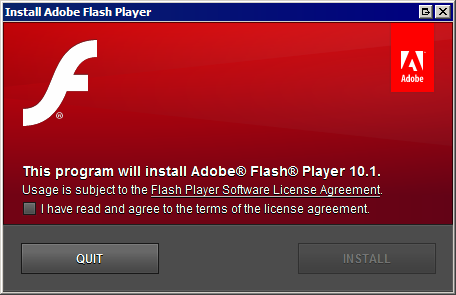Some people might think that I’m crazy for complaining about free services, but squeaky wheels get grease, and I truly believe that these wheels need greasing.
Most free Wi-Fi hotspots require accepting a EULA before they can be used, and they usually accomplish this by intercepting a user’s first attempt to view a web page and by showing a web page with their EULA form instead. This isn’t so unreasonable, but pretty much every EULA page that I’ve seen sucks.
- EULA requirements disrupt service. While most Internet traffic involves the web, there are still other protocols that aren’t uncommon. Some Wi-Fi hotspots block all traffic until the EULA is accepted, but this means that things such as email and instant messaging applications can fail without providing any explanation why. Admittedly, I don’t think that this is fully the fault of the hotspots themselves since they can’t control the error messages (or the lack of them) in the individual applications. Perhaps some standardization effort is warranted here.
- Most EULA pages are not designed for mobile devices with small screens. Free Wi-Fi hotspots might have been predominantly used by laptops not so long ago, but smartphones with Wi-Fi are becoming increasingly prevalent. At least on my Palm Pre, I almost always have to zoom in and to do a lot of scrolling to find the checkbox or button to accept the EULA, and then I have to zoom in some more so that it’s big enough to tap on.
- Most EULA pages don’t automatically redirect to the original destination. If I go through the effort to type out a web page address on my tiny keyboard only to be redirected to a EULA page, at least redirect me to my original destination after I accept the EULA. Don’t make me type out the address again.
In some cases, free Wi-Fi hotspots actually do me more harm than good. Since I have an unlimited data service through Sprint, if my phone suddenly decides to use a free Wi-Fi hotspot instead of my cellular data service, I suddenly have to deal with all of the EULA nonsense (or, as mentioned before, things just start mysteriously failing).
Unfortunately, there aren’t strong economic incentives to fix issues with free things. Alas.




